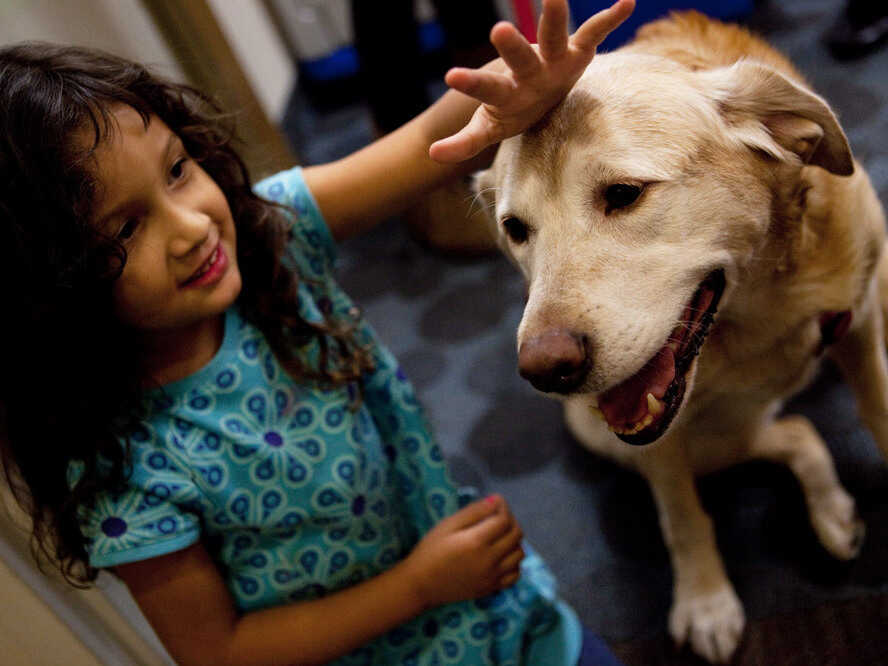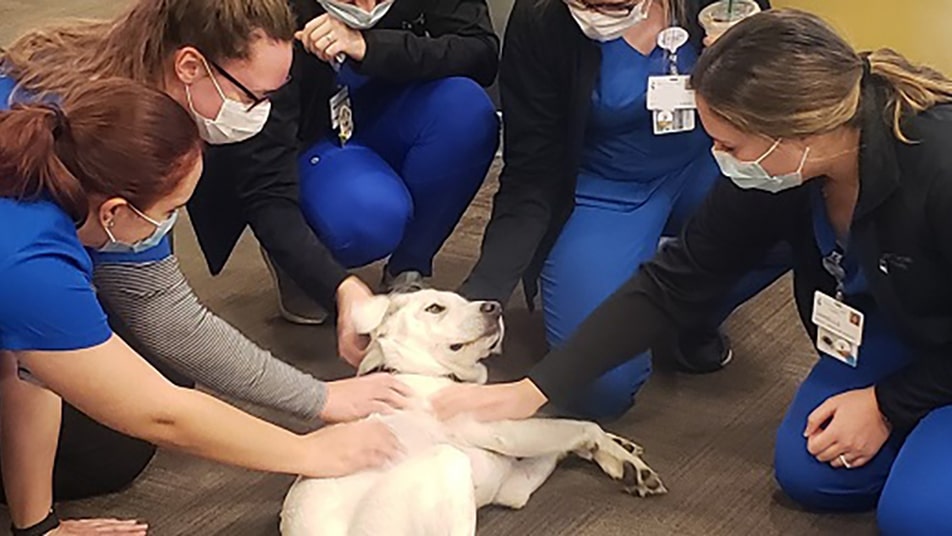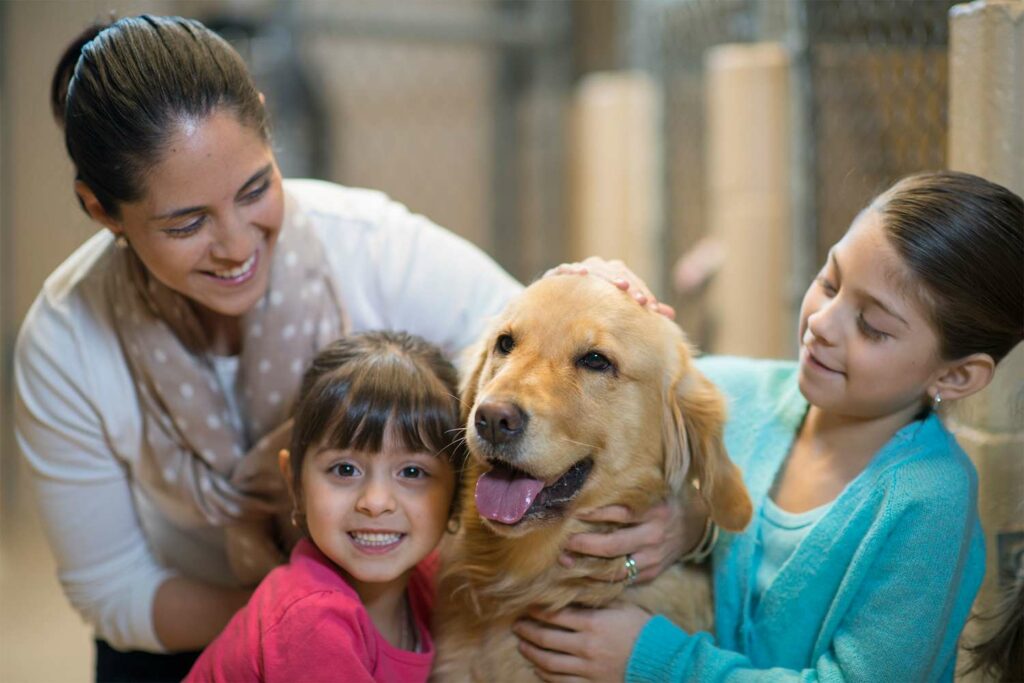The Connection Between Pet Adoption and Pet Therapy
Pet adoption and pet therapy share a symbiotic relationship, as the act of adopting a pet often becomes a transformative journey toward emotional well-being. In a world where stress and anxiety seem to be ever-present, individuals are turning to unconventional methods for solace. Pet therapy, a practice gaining remarkable popularity, is not only a source of emotional support but is intricately connected to the act of pet adoption. Understanding the profound impact of this connection requires delving into the therapeutic power of animals and the transformative journey of pet adoption.
The Healing Power of Animals
Scientific Evidence Supporting Therapeutic Effects
The bond between humans and animals transcends the physical, reaching into the realm of mental and emotional well-being. Scientific studies consistently affirm the therapeutic effects of interacting with animals. Research has shown that such interactions trigger the release of oxytocin, commonly known as the “love hormone.” This hormone is responsible for creating a sense of connection and well-being in both humans and animals. The physiological responses to these interactions contribute to a myriad of emotional and physical benefits.
Emotional and Physical Benefits
The therapeutic effects of engaging with animals extend to various facets of human health. On an emotional level, companionship with pets has been proven to reduce stress, anxiety, and symptoms of depression. The unconditional love and support provided by animals create a unique bond that fosters emotional resilience.
Physically, the benefits are equally significant. Studies have demonstrated that spending time with animals can lead to lower blood pressure, reduced heart rates, and improved overall cardiovascular health. The act of petting a dog or cat, for example, has a calming effect that promotes relaxation and mitigates the impact of stressors in daily life.

Pet Adoption as a Lifesaver
Overview of the Current Pet Overpopulation Crisis
While the therapeutic benefits of interacting with animals are clear, there is a concurrent issue that demands attention – the pet overpopulation crisis. Shelters worldwide are inundated with animals in need of homes. This crisis not only poses a threat to the well-being of these animals but also challenges the capacity of shelters to provide adequate care.
Impact of Adoption on Pets and Shelters
Pet adoption emerges as a solution to this crisis, serving as a lifeline for countless animals. Choosing to adopt from shelters not only gives a second chance to an animal in need but also alleviates the strain on overcrowded shelters. By providing a loving home, adopters contribute to the well-being and happiness of their adopted pets while making a positive impact on the broader issue of pet overpopulation.
Choosing the Right Companion
Matching Pet Personality to Adopter’s Lifestyle
The decision to adopt a pet is significant and requires careful consideration of both the adopter’s lifestyle and the pet’s personality. Compatibility is key to ensuring a harmonious and fulfilling relationship. Different breeds and individual animals have unique temperaments, energy levels, and social needs. Matching these characteristics to the adopter’s lifestyle ensures that the pet becomes an integral and positive part of the family.
Factors to Consider in Pet Selection
Beyond matching personalities, several factors should be considered during the pet selection process. These include the size of the living space, the time available for daily activities, and the financial commitment associated with pet care. Understanding the specific needs of different animals – from exercise requirements to grooming – allows adopters to make informed choices that benefit both the pet and the adopting family.
Building Emotional Bonds
Importance of Establishing a Strong Bond with the Adopted Pet
The journey of pet adoption extends far beyond providing a home; it involves the crucial task of building a strong emotional bond with the adopted pet. The importance of this connection cannot be overstated. Establishing a bond with a pet goes beyond the routine aspects of care and transforms the relationship into a source of emotional support and companionship.
Enhancing the Therapeutic Effects Through Connection
The emotional bond formed with an adopted pet serves as a catalyst for enhancing the therapeutic effects of pet ownership. As the bond strengthens, so does the positive impact on mental well-being. The sense of connection, loyalty, and unconditional love that pets offer contributes significantly to reducing stress, anxiety, and feelings of isolation. The act of caring for a living being creates a symbiotic relationship where both the pet and the owner benefit emotionally and psychologically.

Pet Adoption and Mental Health
Reduction of Stress, Anxiety, and Depression
Pet adoption emerges as a powerful antidote to the prevalent issues of stress, anxiety, and depression in modern society. The companionship provided by a pet serves as a constant source of comfort and support. The daily interactions, shared moments, and unconditional love from a pet have been shown to reduce stress levels, alleviate anxiety, and even mitigate symptoms of depression.
Personal Stories of Individuals Benefiting from Pet Adoption
Real-life narratives abound with stories of individuals who have experienced transformative changes in their mental health through pet adoption. These personal stories serve as testimonials to the profound impact that the presence of a furry friend can have on one’s emotional well-being. From overcoming loneliness to finding purpose, the bond formed with an adopted pet becomes a powerful force in navigating the challenges of life.
Pet Therapy in Specialized Settings
Integration of Pet Therapy in Healthcare Facilities
The therapeutic benefits of the human-animal bond extend beyond individual households and find a meaningful place in specialized settings such as healthcare facilities. Pet therapy, where trained animals interact with individuals, has become an integral part of various therapeutic interventions. The calming presence of animals in hospitals, clinics, and nursing homes contributes to a healing environment that extends beyond traditional medical practices.
Positive Outcomes in Hospitals and Nursing Homes
Studies have demonstrated the positive outcomes of integrating pet therapy into healthcare settings. Patients in hospitals and residents in nursing homes experience reduced anxiety levels, improved mood, and increased social interaction when exposed to therapy animals. The non-judgmental and comforting presence of these animals creates a bridge to emotional well-being for individuals facing health challenges.
Benefits for Children
Impact of Pet Adoption on the Emotional Development of Children
The presence of a pet in a child’s life can have profound effects on their emotional development. The companionship and unconditional love offered by a furry friend create a sense of security and attachment. Children learn essential life skills such as empathy, compassion, and responsibility through their interactions with pets, forming a foundation for healthy emotional development.
Educational and Social Benefits
Beyond emotional growth, pet adoption brings forth educational and social benefits for children. Caring for a pet instills a sense of routine and discipline. Children develop an understanding of the needs of another living being, fostering a sense of responsibility. Additionally, pets often become playmates, encouraging social interaction and communication skills in children.
The Unique Role of Shelter Pets
Overcoming Misconceptions about Shelter Animals
Shelter pets often face unfair stereotypes and misconceptions. However, these animals possess unique qualities and can make exceptional companions. Overcoming preconceived notions about shelter pets is essential. Many of these animals are loving, well-behaved, and eager to find a forever home, challenging the stereotypes associated with shelter environments.
Highlighting Success Stories of Shelter Pet Adoptions
Sharing success stories of shelter pet adoptions is a powerful way to showcase the positive impact of choosing a pet from a shelter. Many families have experienced the joy of transforming a shelter animal’s life, proving that these pets can thrive and bring immense happiness to their adoptive families. By highlighting these success stories, the stigma surrounding shelter pets can be dispelled.
Pet Adoption, Community, and Social Connection
Formation of Communities Around Pet Owners
The act of pet adoption extends beyond individual households, fostering the formation of communities around pet owners. Shared experiences, such as playdates and pet-related events, bring people together. These communities become a source of support, advice, and camaraderie, creating a network where pet owners can connect and share their love for animals.
Social Benefits of Walking and Interacting with Pets
Pets, especially dogs, encourage physical activity through activities like walking and playing. These interactions not only benefit the health of the pet but also provide opportunities for social connections. Regular walks create chances for pet owners to engage in conversations with neighbors, promoting a sense of community and social connection.
Responsibility and Commitment
Emphasizing the Long-Term Commitment of Pet Ownership
Pet adoption comes with the responsibility of long-term commitment. Emphasizing this commitment is crucial to ensure that individuals are fully prepared for the responsibilities of pet ownership. Understanding the time, financial, and emotional investments required fosters a sense of responsibility and dedication to the well-being of the adopted pet.
The Role of Responsible Pet Care in the Therapeutic Process
Responsible pet care is not just a duty but a vital component of the therapeutic process. The act of caring for a pet involves meeting their physical, emotional, and medical needs. Engaging in responsible pet care enhances the bond between the pet and the owner, maximizing the therapeutic benefits of the human-animal relationship.

Conclusion:
In the intricate dance between pet adoption and pet therapy, the connection is undeniable. The healing power of animals, coupled with the transformative act of adoption, creates a symbiotic relationship that enriches the lives of both humans and pets. As we navigate the complexities of modern life, the therapeutic benefits of adopting a pet become a beacon of hope and companionship.
Also Read:
Pet Care Tips for Cats for Beginners
Pet Care Tips for Dogs for Beginners



